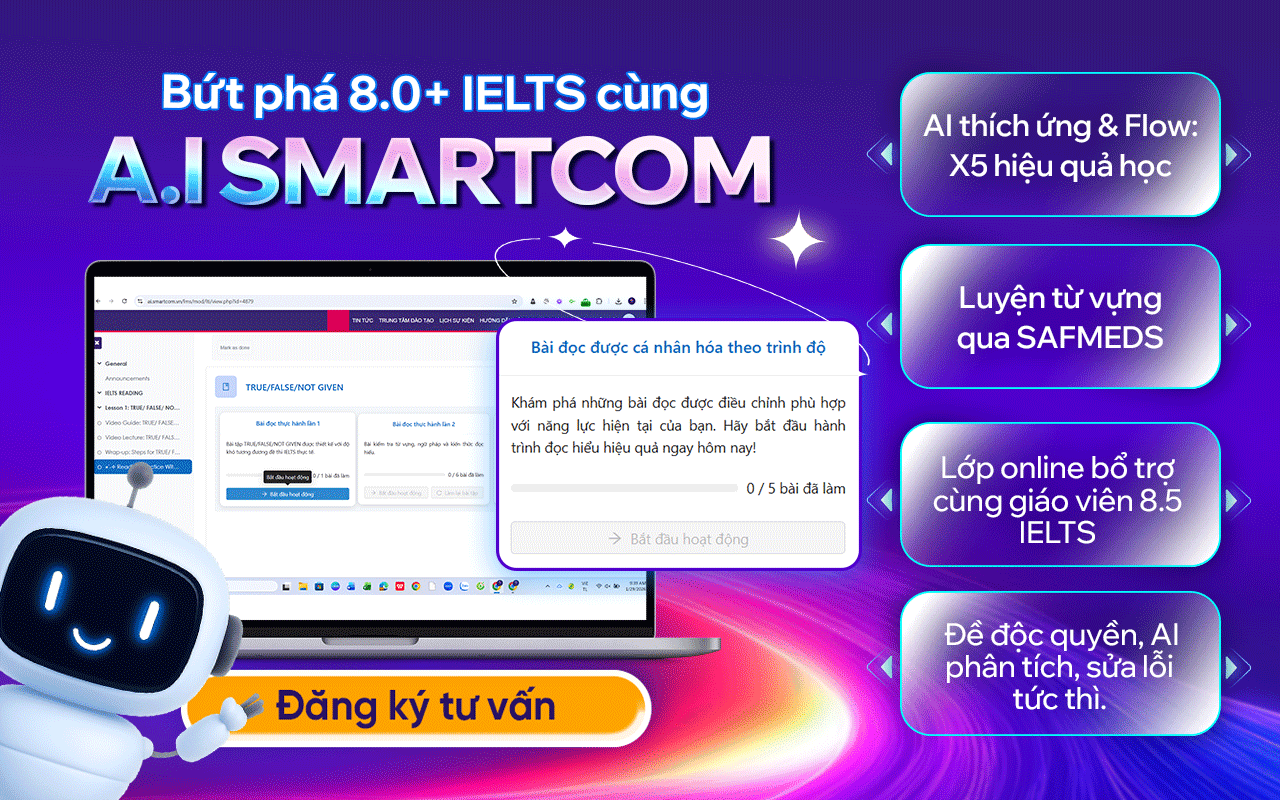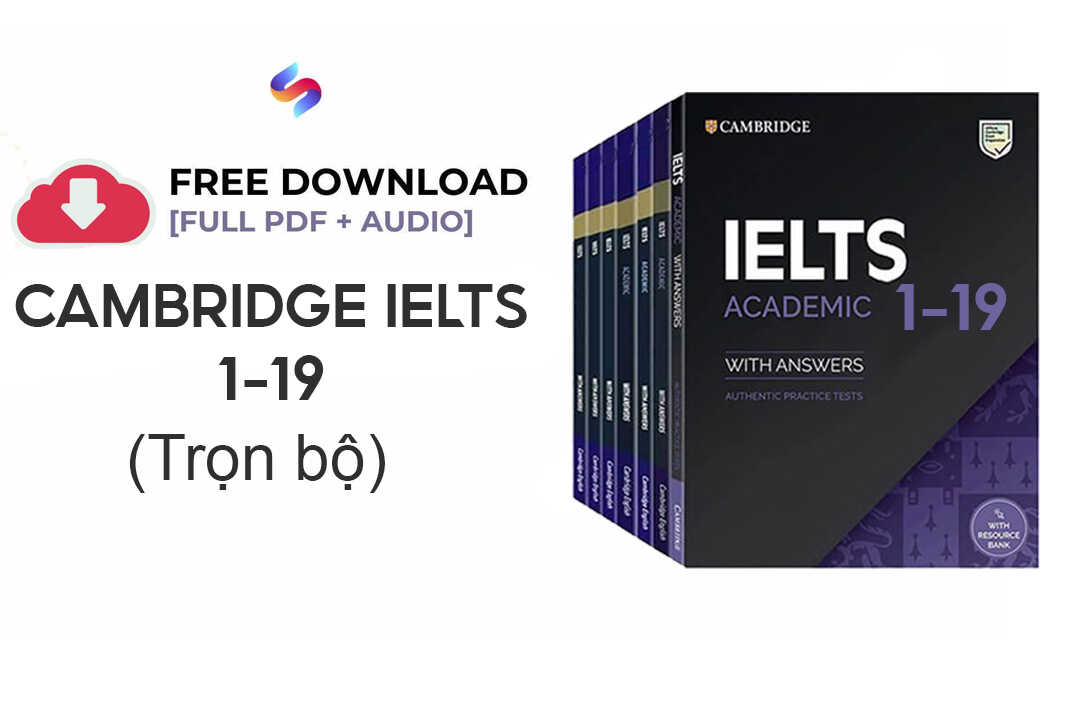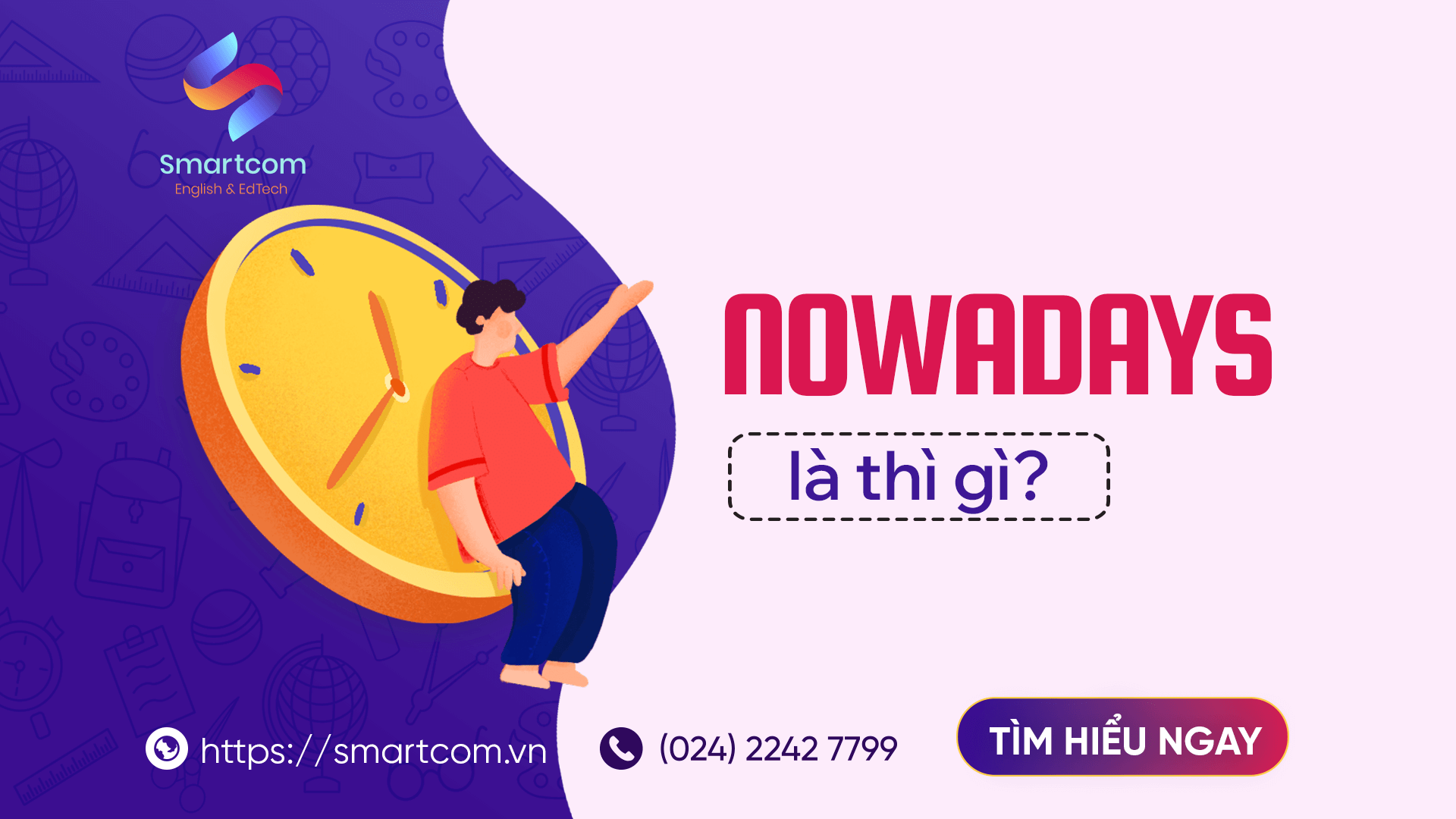Đội ngũ chuyên gia tại Smartcom English là tập hợp những chuyên gia đầu ngành trong lĩnh vực IELTS nói riêng và tiếng Anh nói chung. Với phương pháp giảng dạy sáng tạo, kết hợp với công nghệ AI, chúng tôi mang đến những trải nghiệm học tập độc đáo và hiệu quả. Mục tiêu lớn nhất của Smartcom Team là xây dựng một thế hệ trẻ tự tin, làm chủ ngôn ngữ và sẵn sàng vươn ra thế giới.
Bài viết này hãy cùng Smartcom English giải chi tiết bài Writing Task 2 trong đề 1 của cuốn IELTS Cambridge 19. Cùng khám phá cách các chuyên gia IELTS phân tích và giải đề theo band điểm 8.5 IELTS sẽ như nào nhé!
Tải miễn phí: Ebook giải đề IELTS Writing CAMBRIDGE 19 (PDF)
Writing Task 2 – Test 1
Some people think that competition at work, at school and in daily life is a good thing. Others believe that we should try to cooperate more, rather than competing against each other.
Discuss both views and give your own opinion.
Tổng quan dạng bài Discuss both views
“Discuss both views” là dạng đề phổ biến gần đây trong các bài thi Actual Test của IELTS. Bài yêu cầu phân tích sâu cả hai quan điểm có trong bài và đưa ra quan điểm của mình, vì vậy yêu cầu người làm phải có tư duy phân tích rất mạnh cùng với vốn kiến thức rộng để có thể phân tích được hết các luận điểm chính trong bài.
Đề bài lần này nói về một vấn đề đang được bàn luận khá nhiều gần đây, đó là động lực để phát triển xã hội sẽ dựa trên “Cạnh tranh” hay “Hợp tác”. Phải nói rằng đây là một chủ đề khó, yêu cầu người viết phải có am hiểu rất sâu sắc về kiến thức xã hội cũng như kĩ năng mềm. Hãy cùng phân tích đề bài một cách kĩ lưỡng hơn nhé!

Phân tích chi tiết đề bài & bước làm
Bước 1: Đọc kỹ câu hỏi và phân tích kỹ đề bài đã cho
– Dịch đề bài: “Một số người cho rằng cạnh tranh trong công việc, ở trường và trong cuộc sống hàng ngày là điều tốt. Những người khác cho rằng chúng ta nên cố gắng hợp tác nhiều hơn thay vì cạnh tranh lẫn nhau. Hãy bàn luận cả hai quan điểm và đưa ra lập trường của chính bạn”
– Từ khóa chính: cạnh tranh, trong công việc, ở trường, trong cuộc sống hàng ngày, cố gắng hợp tác thay vì cạnh tranh lẫn nhau
– Nhiệm vụ phải trình bày: Đây là dạng bài có sẵn hai quan điểm trái chiều, nhiệm vụ đầu tiên là phải xác định vấn đề chung cốt lõi của bài cần bàn luận tới. Trong đây ta có thể thấy rõ vấn đề chung của bài là “Liệu Cạnh Tranh hay Hợp Tác có lợi hơn trong cuộc sống?”. Tiếp theo đó ta cần lên ý tưởng cho mỗi quan điểm. Trong bài ta có 2 quan điểm đối lập rõ rệt “Cạnh Tranh” vs “Hợp Tác”, mỗi quan điểm này đều có những ưu điểm riêng. Hãy cùng xem những ý tưởng bên dưới nha.
Bước 2: Lên dàn ý và chuẩn bị từ vựng cần thiết
Lợi ích của việc Cạnh tranh (Benefits of Competition):
Workplace Productivity and Innovation: Advocates of competition argue that it drives individuals to excel. For instance, in the workplace, competition can lead to higher productivity and innovation as employees strive to outperform their peers.
Academic Motivation and Critical Thinking: Similarly, in schools, students may be motivated to achieve higher grades and develop critical thinking skills to stay ahead of their classmates. The pressure to succeed can drive individuals to acquire new skills and knowledge, ultimately benefiting society as a whole.
Lợi ích của việc Hợp tác (Benefits of Cooperation):
Teamwork and Collective Effort: Proponents of cooperation emphasize the importance of teamwork. In workplaces, cooperation fosters problem-solving and diverse perspectives. In schools, cooperative learning enhances academic performance and social skills.
Real-World Preparedness: Cooperative learning prepares students for real-world scenarios where collaboration is essential.
Ta có thể thấy cả “Cạnh tranh” lẫn “Hợp tác” đều có những ưu điểm khó có thể bỏ qua, tuy nhiên lợi ích của “Hợp tác” dường như mang tính lâu dài hơn và bền vững hơn vì vậy trong bài này ta sẽ viết theo hướng “Refuting”, bác bỏ một phần lợi ích của “Cạnh tranh” để ủng hộ “Hợp tác”.
Bài mẫu IELTS Writing task 2

In contemporary society, the debate over whether competition or cooperation yields better outcomes in work, school, and daily life continues to be a subject of significant discourse. Some individuals assert that competition drives people to achieve higher standards and fosters innovation, while others advocate for cooperation, emphasizing the importance of collective effort and mutual support. This essay will examine the perspective that supports competition, refute it with arguments in favor of cooperation, and present my own opinion on the matter.
Proponents of competition argue that it is a powerful motivator that pushes individuals to excel. In the workplace, competition can lead to increased productivity as employees strive to outperform their colleagues and secure promotions or bonuses. This competitive spirit often fosters innovation, as people seek to develop new ideas and solutions to gain an edge over others. Similarly, in educational settings, competition can inspire students to work harder and achieve better academic results. It encourages a meritocratic environment where individuals are rewarded based on their abilities and efforts. Moreover, competition can also prepare individuals for real-world challenges by developing resilience and problem-solving skills.
However, despite these advantages, the emphasis on competition often overlooks the significant benefits of cooperation. In the workplace, a cooperative atmosphere can lead to enhanced teamwork, improved communication, and a stronger sense of community. When employees collaborate, they can share knowledge, skills, and resources, leading to more efficient and effective outcomes. This collaborative approach often results in higher job satisfaction and a more supportive work environment, which can reduce stress and burnout. In educational settings, cooperation promotes a deeper understanding of the material as students engage in group discussions and projects. It encourages the development of social skills, such as empathy, patience, and the ability to work well with others, which are essential for success in both personal and professional contexts. Furthermore, in daily life, cooperation fosters a sense of belonging and interconnectedness, leading to stronger communities and a more harmonious society.
In my opinion, while competition can drive individuals to achieve their best, cooperation provides a more sustainable and supportive path to success. The benefits of a cooperative approach, including the enhancement of teamwork, communication, and community, outweigh the individual gains often associated with competition. A balanced approach that incorporates elements of both competition and cooperation can create environments that not only drive individual achievement but also foster a sense of community and mutual support. This balance can harness the strengths of both approaches, leading to more dynamic, innovative, and harmonious outcomes.
In conclusion, while competition has its merits in motivating individuals and fostering innovation, cooperation offers more substantial benefits in terms of teamwork, communication, and community building. By embracing a balanced approach that values both competition and cooperation, we can achieve personal and societal progress in a more holistic and sustainable manner.
Đánh giá bài viết theo 4 tiêu chí chấm điểm:
Task Response: 9/9
Bài viết đã đáp ứng tốt yêu cầu của đề bài, thảo luận cả hai quan điểm về cạnh tranh và hợp tác. Người viết đã đưa ra lập luận hợp lý và nêu rõ quan điểm cá nhân. Phần mở bài giới thiệu vấn đề một cách ngắn gọn, và phần thân bài được chia thành hai đoạn để phân tích hai quan điểm một cách rõ ràng. Quan điểm cá nhân của người viết được trình bày mạch lạc trong phần kết luận.
Coherence and Cohesion: 9/9
Bài viết có tổ chức rõ ràng với các ý tưởng chính được phân chia thành từng đoạn riêng biệt. Người viết đã sử dụng các từ nối một cách hợp lý như “However,” “Similarly,” “Moreover,” và “In conclusion,” giúp các ý tưởng được liên kết chặt chẽ và dễ theo dõi.
Lexical Resource: 9/9
Người viết sử dụng từ vựng phong phú và phù hợp với chủ đề, bao gồm nhiều từ và cụm từ học thuật như “meritocratic,” “innovation,” “resilience,” và “sustainable.” Những từ vựng này thể hiện khả năng sử dụng từ ngữ linh hoạt và chính xác của người viết.
Grammatical Range and Accuracy: 9/9
Người viết thể hiện sự hiểu biết và sử dụng nhiều cấu trúc câu khác nhau, từ câu đơn đến câu phức, thể hiện một phạm vi ngữ pháp tương đối rộng. Các cấu trúc như “This collaborative approach often results in higher job satisfaction…” và “While competition can drive individuals to achieve their best…” được sử dụng khá thành thạo. Một số lỗi nhỏ về cách sử dụng thì nhưng không ảnh hưởng quá nhiều đến sự mạch lạc của bài viết.
Overall: 9.0
Bài viết là một nỗ lực tốt, có tổ chức chặt chẽ, cung cấp các luận điểm rõ ràng và thuyết phục về cả hai quan điểm. Người viết đã thành công trong việc sử dụng từ vựng phong phú và cấu trúc câu đa dạng. Bài viết đã cung cấp một câu trả lời đầy đủ và có lập luận rõ ràng cho câu hỏi của đề bài.
Contemporary (Adjective) /kənˈtɛmpərɛri/ Đương đại
Yield (Verb) /jiːld/ tạo ra
A subject of (Phrase) /ə ˈsʌb.dʒɛkt ʌv/ Một chủ đề của
Discourse (Noun) /ˈdɪs.kɔːrs/ Cuộc thảo luận, bài nói
Assert (Verb) /əˈsɜːrt/ Khẳng định
Cooperation (Noun) /koʊˌɒp.əˈreɪ.ʃən/ Sự hợp tác
Mutual support (Noun Phrase) /ˈmjuː.tʃu.əl səˈpɔːrt/ Sự hỗ trợ lẫn nhau
Perspective (Noun) /pərˈspɛk.tɪv/ Góc nhìn
Refute (Verb) /rɪˈfjuːt/ Bác bỏ
Proponents (Noun) /prəˈpoʊ.nənts/ Những người ủng hộ
Motivator (Noun) /ˈmoʊ.tɪ.veɪ.tər/ Yếu tố thúc đẩy
Excel (Verb) /ɪkˈsɛl/ Xuất sắc, vượt trội
Strive to (Phrase) /straɪv tuː/ Cố gắng để
Secure (Verb) /sɪˈkjʊr/ Đảm bảo
Gain an edge over (Phrase) /ɡeɪn ən ɛdʒ ˈoʊvər/ Có lợi thế hơn
Meritocratic (Adjective) /ˌmɛr.ɪ.təˈkræt.ɪk/ Dựa trên thành tích
Resilience (Noun) /rɪˈzɪl.jəns/ Sự kiên cường
Emphasis on (Phrase) /ˈɛm.fə.sɪs ɒn/ Nhấn mạnh vào
Overlook (Verb) /ˌoʊ.vərˈlʊk/ Bỏ qua, không chú ý
Cooperative (Adjective) /koʊˈɒp.ər.ə.tɪv/ Hợp tác
Atmosphere (Noun) /ˈæt.məs.fɪr/ Bầu không khí
Collaborate (Verb) /kəˈlɒb.ə.reɪt/ Hợp tác
Efficient (Adjective) /ɪˈfɪʃ.ənt/ Hiệu quả
Job satisfaction (Noun Phrase) /dʒɒbˌsæt.ɪsˈfæk.ʃən/ Sự hài lòng với công việc
Supportive (Adjective) /səˈpɔːrtɪv/ Hỗ trợ, khuyến khích
Burnout (Noun) /ˈbɜːrnaʊt/ Kiệt sức
Empathy (Noun) /ˈɛmpəθi/ Sự đồng cảm
Interconnectedness (Noun) /ˌɪntərˈkəˈnɛktɪd.nəs/ Tính liên kết
Harmonious (Adjective) /hɑːrˈmoʊ.ni.əs/ Hài hòa
Sustainable (Adjective) /səˈsteɪ.nə.bəl/ Bền vững
Associated with (Phrase) /əˈsoʊ.si.eɪ.tɪd wɪð/ Liên quan đến
Drive (Noun/Verb) /draɪv/ Động lực; điều khiển
A sense of community (Phrase) /ə s ɛns ʌv kəˈmjuːnɪti/ Cảm giác cộng đồng
Harness (Verb) /ˈhɑːrnɪs/ Khai thác
Dynamic (Adjective) /daɪˈnæmɪk/ Năng động
Substantial (Adjective) /səbˈstæn.ʃəl/ Đáng kể
Embracing a balanced approach (Phrase) /ɪmˈbreɪsɪŋ əˈbælənst əˈproʊtʃ/ Chấp nhận một cách tiếp cận cân bằng
Societal progress (Noun Phrase) /səˈsaɪ.ɪ.təlˈprɔːɡ.res/ Tiến bộ xã hội
Holistic (Adjective) /hoʊˈlɪs.tɪk/ Toàn diện
Như vậy bạn vừa được tham khảo các bước phân tích và bài mẫu theo band 8.5 IELTS cho bài Writing task 2 trong đề 1 của cuốn IELTS Cambridge 19. Hy vọng giúp ích bạn trong quá trình ôn luyện IELTS.
By: Smartcom English – IELTS experts
(Đăng lại nhớ ghi rõ nguồn. Bản quyền thuộc về Smartcom English)
Kết nối với mình qua
Bài viết khác


![[PDF + Audio] Tải Sách IELTS Cambridge 19 (Kèm đáp án)](https://smartcom.vn/blog/wp-content/uploads/2024/06/ielts-cambridge-19_optimized.png)


![[PDF + Audio] Tải Sách IELTS Cambridge 17 (Kèm đáp án)](https://smartcom.vn/blog/wp-content/uploads/2024/07/sach-ielts-cambridge-17_optimized.jpg)

![[PDF + Audio] Tải Sách IELTS Cambridge 15 (Kèm đáp án)](https://smartcom.vn/blog/wp-content/uploads/2024/07/ielts-cambridge-15_optimized.jpg)








